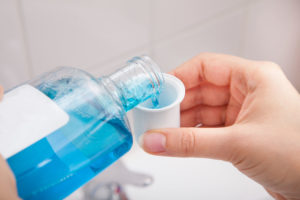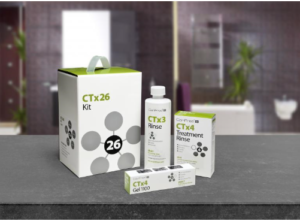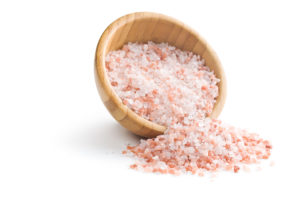There are a variety of mouth washes available from Chemists, Supermarkets and Dental practices. But what do they all do? Do you need to use them, and which one is the right one for you?
Depending on your current oral health status and situation depends if you need to use a mouth rinse or not. Many TV advertisements claim that using a mouthwash does the bulk of the work cleaning the teeth.
To put it in other words….
If you were to throw a bucket of water over your car, would it clean it? You need to use a sponge to physically clean the grime off the car. Similar to your mouth, the plaque needs to be mechanically removed from the teeth. It is a sticky substance and needs to be brushed to be removed.
All mouthwashes contain different ingredients to help for different situations. To know which mouthwash is suitable for you, consult an oral health professional.
Here is a rundown of the mouthwashes we stock at Hartwell Dentistry.
Endosure Hypochlor
Active Ingredient: Sodium Hypochlorite
This active ingredient is found to be naturally produced in our bodies to fight bacteria, it is used for dental treatments such as root canal therapy.
The bottle provided is an undiluted rinse – and is meant to be diluted significantly before use. Its benefits are profound, and many worldwide studies have shown this to be the leading ingredient to combat the bacteria that cause gum and bone disease.
It is not purchasable at your local Pharmacy, it is a prescribed mouth rinse that your Dentist will recommend.
Closys
Active ingredients: Chlorine Dioxide
It is aimed at patients with issues with halitosis (bad breath odour).
The active ingredient works against the volatile sulphur compounds that cause bad breath. This product is alcohol free, and it can be purchased in a kit with a tooth paste and mouth spray. Generally not available from chemists.
CTX
Active ingredients: Xylitol, Fluoride
This mouth rinse is best used for patients with a high decay rate.
There are two types of these rinses, a treatment rinse (requires 2 solutions to be mixed together) and a maintenance rinse.
The active ingredients work to change the pH of the mouth to favour good bacteria and reduce bacteria that causes holes. The treatment rinse is used for patients that have recently come in with new decay. While the maintenance is used to maintain the health of the teeth long term.
This product can only be purchased in the dental surgery.
Listerine – Not stocked at Hartwell
Active ingredients: Eucalyptol, Menthol, Thymol, Methyl Salicylate
Listerine contains 4 essential oils that claim to help with oral health. It comes in a few different varieties, most of them using alcohol as a carrier/preservative.
While Listerine may make your mouth feel fresh short term 10-15 minutes) due to the alcohol and the minty taste, there aren’t any real long term benefits.
It is best to avoid using this as a daily long term rinse due to the minimal benefits and due to the high alcohol content which can increase the risk of oral cancer.
Salt water
A warm salt water mouthwash can be used following oral surgery or if there are any wounds/ulcers in the mouth
. Salt is said to be a natural disinfectant and is readily available to make at home.
Due to the overwhelming amount of choices, it is best to have your oral health assessed before you start using a mouthwash. Your oral health professional will advise you which mouthwash, if at all, would be best suited to your mouth




